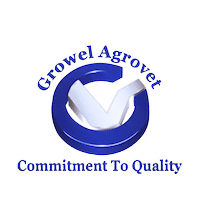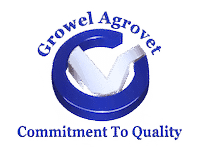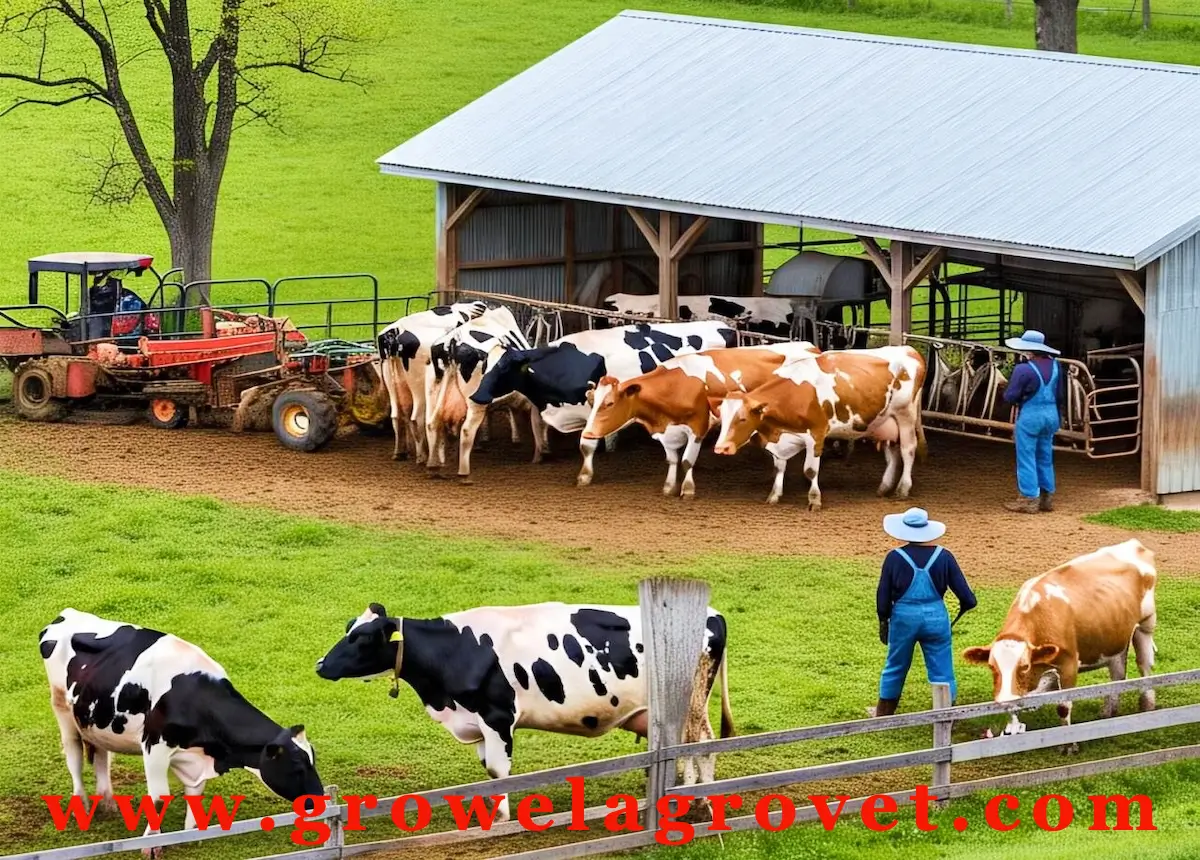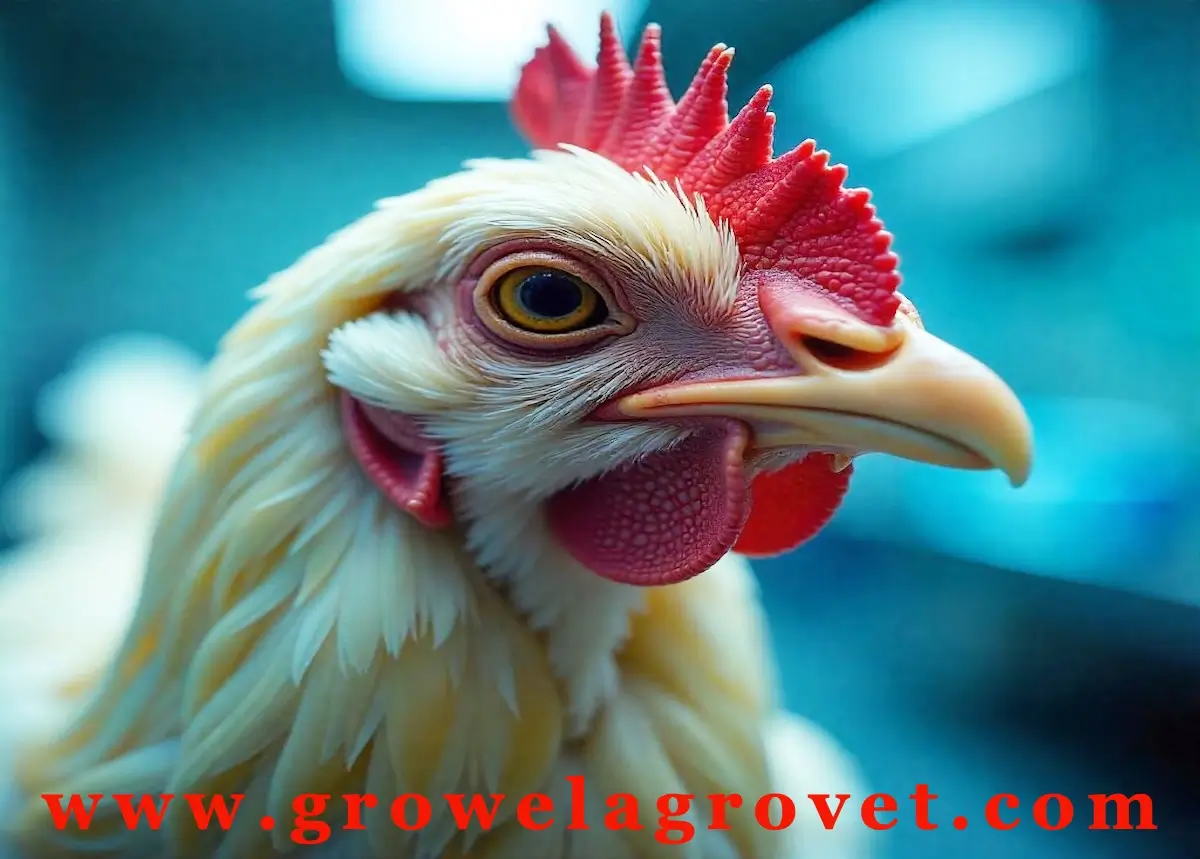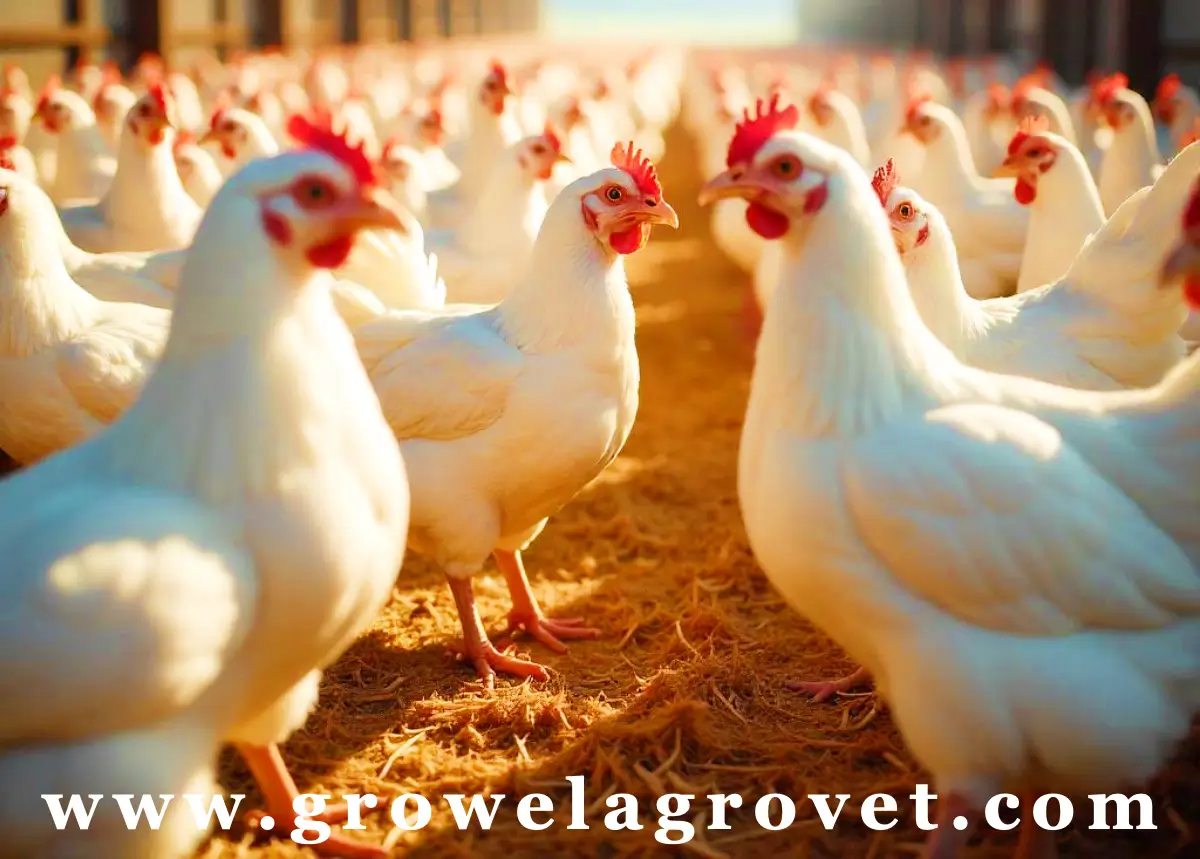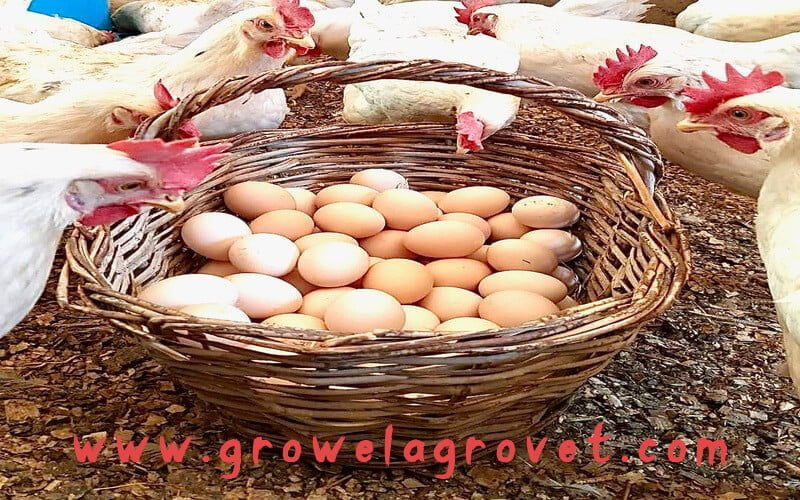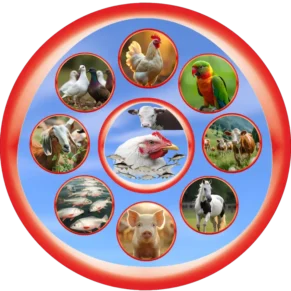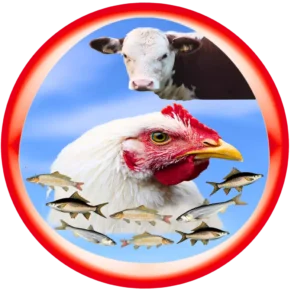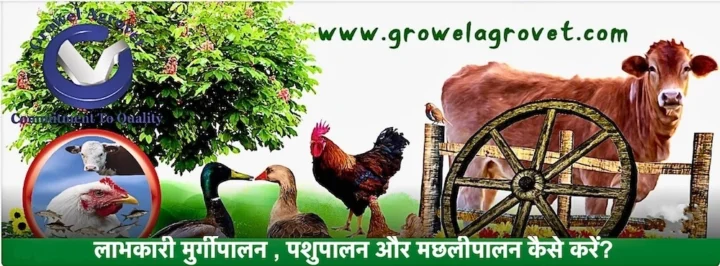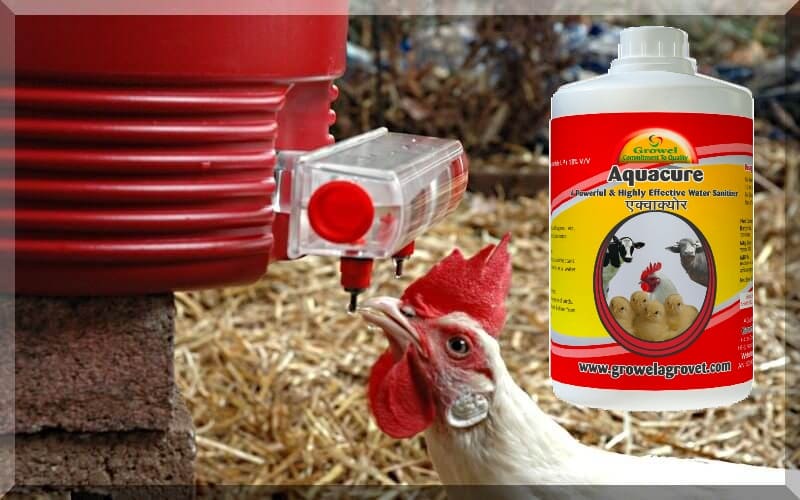 Poultry water treatment is a very crucial step in a poultry operation and should be effectively carried out because poultry industry uses various water sources such as the municipal water, underground water, and to some extent, surface water and rain water. Regardless of the source, it is highly important that water provided should be free of microbial contamination to ensure flock health and performance, and food safety. Therefore, water sanitation is a very crucial step in a poultry operation and should be effectively carried out.
Poultry water treatment is a very crucial step in a poultry operation and should be effectively carried out because poultry industry uses various water sources such as the municipal water, underground water, and to some extent, surface water and rain water. Regardless of the source, it is highly important that water provided should be free of microbial contamination to ensure flock health and performance, and food safety. Therefore, water sanitation is a very crucial step in a poultry operation and should be effectively carried out.
Water quality should be of concern to all poultry operations. Poor water quality may interfere with digestion and subsequent bird performance. The effectiveness of vaccines and medications administered through the water lines could be reduced when water quality is poor. Water contaminants could create equipment problems that would either restrict the amount of water available for consumption or the effectiveness of the evaporative cooling and fogging systems. Reduced water consumption or cooling capacity may have detrimental effects on both growth and reproduction. Poor water quality could also result in leaky water nipples inside the house, which will wet litter and lead to increased ammonia production. Poor litter quality and high ammonia can result in reduced performance and livability.
What should be quality of water for poultry ?
Water for poultry should be clean, safe & soft but often it is overlooked. Water is involved in every aspect of a poultry metabolism. Water for poultry plays an important role in regulating body temperature, digesting food, and eliminating wastes. At normal temperatures, chickens typically consume twice as much water as feed. During periods of high temperature, water consumption can double or quadruple. To remain healthy, poultry flocks require water of adequate quality and quantity.
So it is very important that poultry farmers need to understand proper water requirements for poultry. Several factors influence water quality, including the colour, taste, and odour of water, as well as the presence of bacteria or other microbes, the levels of minerals, and other chemical and physical factors. What are the characteristics of safe, good-quality drinking water for poultry and importance of poultry water treatment we will discuss in this article.
Colour, Taste, and Odour of Water for Poultry:
It is important that drinking water be clear, tasteless, odourless, and colourless. Water that is contaminated exhibits different characteristics depending on the contaminants.
- The presence of particles such as clay, silt, or organic material can make water cloudy. Such water can interfere with the proper operation of watering equipment and can indirectly lead to adverse effects on flock performance.
- Water that is reddish-brown might contain excess iron.
- A blue hue to water can be an indication of excess copper.
- A rotten egg smell is an indication of hydrogen sulfide in water. Hydrogen sulfide may also combine with iron to form black water (iron sulfide), which can also indicate the presence of sulfate-reducing bacteria.
- The taste of water can be affected by the presence of different salts. A bitter taste, for example, is associated with the presence of ferrous and manganese sulphates.
Bacteria :
Bacteria in the water can be an indication of contamination by organic material. Water is normally tested for total bacteria level as well as coliform bacteria level. Coliform bacteria are organisms normally found in the digestive tracts of livestock, humans, and birds. The presence of coliform bacteria is typically an indication of fecal contamination. If water has a high bacterial count, the best option is to eliminate the source of the contamination or to locate an alternative water source. It is not advisable to use disinfectants to maintain safe bacterial levels in a highly contaminated water source. Any disinfectant is likely to fail at some time and expose the birds to high levels of bacteria.
Physical and Chemical Characteristics of Water for Poultry:
The acidity or alkalinity of water is expressed as pH level. A scale from 0 to 14 is used to measure pH. Neutral water, which is neither acidic or alkaline, has a pH of 7. Water with pH lower than 7 is acidic, and water with pH higher than 7 is alkaline. Acidic drinking water can affect digestion, corrode watering equipment, and impair the use of water-soluble vaccines and medications. Poultry prefer water with a pH of 6.0 to 6.8 but can tolerate a pH range of 4 to 8. However, water with a pH less than 6 has been shown to negatively affect chicken performance. When provided water with a pH above 8, chickens might reduce their water consumption. This in turn will affect feed consumption and bird performance.
Hardness refers to the amount of dissolved minerals, such as calcium and magnesium, in water. Hard water has high levels of these minerals and can cause the build-up of sludge in water lines. Hardness reduces the effectiveness of soaps and disinfectants and interferes with the administration of some medications. Although hard water can cause stains and adversely affect watering equipment, hard water has not been shown to have either a positive or negative direct effect on poultry performance.
Various brands of water sanitizers or water aciditifier for poultry are available for poultry water treatment , under a few classes of disinfectants advocating its efficacy under worst case conditions. These products are required to monitor in field conditions for their true efficacy, applicability, and along with safety aspects. Water being the prime nutrient for poultry, the industry should pay close attention in these regards to providing the best sanitising option for poultry producers and to address any type of water quality issues. It has been seen Aquacure is a one of the best water sanitizer for poultry.
Along with picking the right product some basic tips for poultry water treatment should be followed :
- Use the right concentration of a cleaner and give it the proper amount of time to work. Improper cleaner concentration or not giving it enough time to work will result in failure.
- The entire system must be cleaned: the water lines, standpipes, regulators and distribution pipes. If any part of the system is not cleaned of biofilm and other residue, it can undermine all the time and effort spent on cleaning and lead to health problems in a broiler flock.
- Document which products work best for your operation. There are no two farms are the same, so it is necessary to figure out which products work best and record it for future reference. Swabs of microbial content collected before and after cleaning can help determine which products work best.
- No matter how well the system was flushed clean, flush it with a water sanitizer Aquacure birds can drink after cleaning. Stabilized products work best because they keep working for days after application. The secondary poultry water treatmentcan kill microbes that survived the line cleaning.
So a safe and adequate supply of water and proper poultry water treatment is therefore essential for efficient poultry production. You should also read Bio Security in Poultry
If you are into poultry related business & want to earn maximum profit in your business then please join our Facebook group How To Do Profitable Poultry & Cattle Farming ?
Aquacure A Powerful & Highly Effective Water Sanitizer & Disinfectant for Poultry. Composition: BKC Solution (Benzalkonium Chloride I.P) :18% V/V Citric Acid I.P :24% W/V . Inert Ingredients qs Indication & Benefits :
Dosage : For Water Sanitation & Acidifier: 5-7 ml in 20 liter of water. For Disinfection & Descaling : 10-20 ml. per liter of water .Should be used regularly. Packaging : 500 ml.,1 ltr. & 5 ltr. | A Powerful Poultry Disinfectant Products & Farm Disinfectant. Composition : Sodium Chloride : 1.5% w/w Salt containing Potassium Monopersulphate, Potassium Hydrogen Sulphate Potassium Sulphate : 49.6% w/w Buffer & Excipients : q.s. to 100% Colour Indications & Benefits :
Dosages: To Spray on Birds : 10 gm. in 1 ltr. water (For 1000 sqft. farm 10 litre spray) To Spray in Farm : 20 gm. in 1 ltr. water (For 2000 sqft. farm 10 litre spray) To Spray on Cleaned Equipment : 10 gm. in 1 ltr. water. For regular use or recommended by veterinarian. Packaging : 100 gm., 500 gm., & 1 Kg. |
